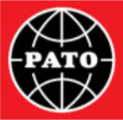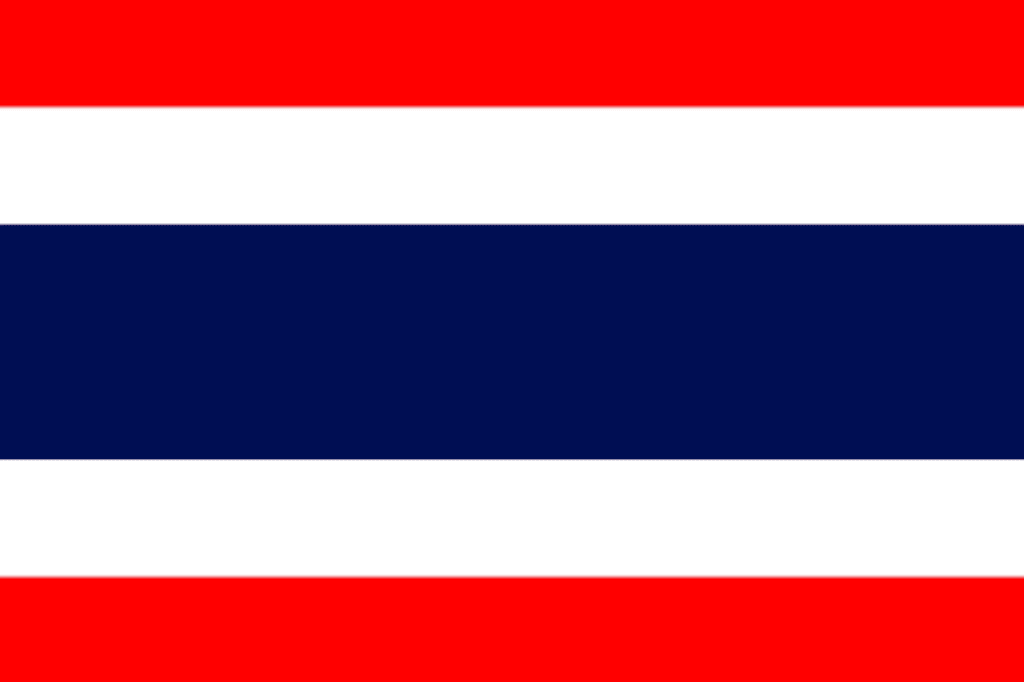Corporate governance
[hfe_template id=’1164′]
Corporate Governance Policy
Pato Chemical Industry Plc.’s Board of Directors is aware of the importance of Corporate Governance in increasing operational transparency and shareholder confidence, creating thorough management and acting with caution for the greatest benefit. The company is steadfast in its aim to undertake business for the satisfaction of shareholders and provision of good return on a continuous and secure basis which are auditable and reliable by all parties. The company realizes the right of all stakeholders who are treated equally.
The board of directors set Corporate Governance Policies as follows :
- Accountability to any decision making and performance.
- Responsibility to perform assigned duties with full potential and efficiency.
- Equitable treatment to all stakeholders avoid human rights violation.
- Transparency of verifiable information disclosed to related parties.
- Creation of long-term value to the company.
- Adherence to code of conducts and work ethics.
- Adherance to Anti-Coruption Policy.
The company arranges the general meeting of shareholders by facilitating and encouraging shareholders, Institutional investors to attend the meeting in the place where everyone can attend the meeting at ease. In 2023 the company conduct annual general meeting of shareholders on Friday 21, April 2023. Therefore, the company prepares documents and details which shareholders should have knowledge of, and gives these to shareholders for their consideration at least 14 day before the meeting. Notice for the meeting and proxy form were post in Company’s website on March 21, 2023. In the event the shareholder cannot attend the meeting, the company includes a documentary consent of representation together with the invitation to the meeting. With this documentary consent of representation, the shareholder can give power of attorney to another person or a member of the audit committee, to attend the meeting and exercise right to vote according to the wishes of the shareholder. Registration procedure is opened at least 1 hour before the meeting time.
Shareholders will be able to propose any agendas to the board for consideration before 13 February 2023 by mail, fax or e-mail : [email protected].
In voting,one share is equally entitled to one vote. For any connected transaction agendas, interested shareholders will be informed to abstain from voting.
In addition, the company makes a complete and correct record of the meeting, which can be checked by shareholders.
Independent Directors and Audit Committee
The company’s Board of Directors has 11 members which 4 of them are independent directors namely : Committee
Mr.Lertchai Leelayonkul
Mr.Chaiwat Chandarasrivongs
Mr.Sahai Supsoontornkul
Ms.Arpapachara Siriphanwaraporn
The board of director has appointed a sub-committee to help oversee the following operations of the company. ames of members of the Audit Committee are as follows :
Chairman of the Audit Committee Mr.Lertchai Leelayonkul
Member of the Audit Committee Mr.Chaiwat Chandarasrivongs
Member of the Audit Committee Ms.Arpapachara Siriphanwaraporn
Secretary to the Audit Committee Ms. Navaporn Phothai (Internal Audit)
***Terms for holding office : 3 Years***
Latest renewal of terms for holding office is 2019. Mr.Lertchai Leelayonul is a qualified audit committee with accounting experiences to perform review of financial statements of the company.
Definition of Independent Directors
1. Holding shares not more than 1% of total voting shares of the company, the affiliated company, the associated companies or person who may have the conflict of interests (counting of the person concerned according to Section 258 of Securities and Exchange Act).
2. No participation in management including employee, staff, business consultant who receives permanent salary or the person who has the power to control the company, parent company, subsidiary company, associated company or subsidiary companies in the same level or juristic person which may have the conflict of interests (at present and 2 years period prior to an appointment).
3. No blood relations, nor by way of registration in the manner of father or mother, spouses, brothers and sisters of full blood and legitimate child including spouse of legitimate child and executive, major shareholders or person who has power to control or person who is supposed to be nominated as an executive or person who has power to control the company or subsidiary companies.
4. Business relation with the company
(a) Nature of relation
• Relation in the manner of professional service
o Nature of relation: Auditor, person who renders professional service, such as legal consultant, financial consultant, properties appraiser etc.
o Key definition included in the meaning of dependence
– In case of auditor: Not allowed in all respects.
– In case of person who renders professional service: Value of transaction more than 2 million baht per year.
• Commercial/business relations
o Nature of relation: Extending to all kinds of business transactions, i.e. normal transactions, transaction of letting/renting, transaction relating to asset/service and transaction of giving or receiving financial assistance.
o ey definition included in the meaning of dependence: value of transaction ≥ 20 million Baht or ≥ 3% of NTA of the company whichever is lower. In this matter, to consider the value of transactions, it is to include transactions during 6 months prior to the day of doing this transaction.
(b) In case of nature of relation under (a) with juristic person, person deemed to be dependent i.e. major shareholders, director (except independent directors/audit committee) and executive or partners of such juristic person.
(c) In case of nature of relation under (a) and (b): at present and 2-year period prior to appointment.
(d) Exception: In case of necessity or suitability which rarely happens, independent directors/audit committee may have relation more than level of key definition prescribed during in office with prior approval of the board of directors and such resolution must be unanimous.
5. Not a director appointed as proxy of the company, major shareholders or shareholder related to major shareholders of the company.
6. No any qualifications not be able to give an opinion independently.
7. Independent director who has the qualifications according to 1-6 may be appointed by the board of directors to make decision in the business of the company, parent company, subsidiary company, associated company, subsidiary company of the same level or juristic person which may have conflict of interests by collective decision.
Qualifications of Audit Committee
1. Appointed by the board of directors or shareholders.
2. All Audit Committee must be independent director.
3. Not a director appointed by the board of directors to make decision in the business of the company, parent company, subsidiary company, associated company of the same level or the person who may have the conflict of interests.
4. Not a director of the parent company, affiliated companies or affiliated companies of the same level.
5. Having duties prescribed by the Securities Exchange.
6. At least 1 Audit Committee shall have knowledge and experience sufficient to perform his duties to review the reliability of financial statement.
Work Ethics
The company has come out with a written code of ethics for the Board of Directors and employees, to serve as a guideline for those concerned in executing their duties with honesty. The company also holds staff meetings on a regular basis.
Code of conduct for Directors of Pato Chemical Industry Plc.
1. Conduct their duties honestly and with integrity, comply with all laws, the objectives and the articles of association of the company, and the resolutions of any shareholder meetings in goods faith, and with care to preserve the interests of the company.
2. Implement and direct the company’s policies, as well as monitor and supervise its operations to maximize economic value and shareholders’ wealth.
3. Ensure management’s accountability to shareholders: preserve their rights and interests, clearly and fully disclose information.
4. Determine to carry on the business continuously.
5. Continuously follow and monitor the business performance and operations of the company according to its law and regulations.
6. Avoid any other positions or jobs that may lead to conflicts of interest.
Code of Conduct for Employees of Pato Chemical Industry Plc.
Managers and employees should demonstrate their commitment to this code by maintaining a workplace environment that require compliance with the code. The code of conduct is not possibly inclusive for all situations which may arise. In the event that employees run into the situations which have not been described herewith please rely on each employee’s good sense of what is right and also seek guidance from supervisors for appropriate course of conduct.
1. Perform their duties with responsibility and honesty.
2. Increase knowledge and experience to promote integrity and personal growth and ability to perform more effectively and efficiently.
3. Must be polite, considerate and maintain good relationships with colleagues, must not conceal any information necessary for the colleague to execute his/her duties, and must try to become well adjusted to work in harmonious relationship with others.
4. Maintain and promote unity among colleagues and legitimately assist each other of the company operational benefit as a whole.
5. Treat subordinate fairly and compassionately, groom and develop subordinates for their career advancement by imparting work related knowledge, training and providing them with opportunities to increase knowledge and experience.
6. Listen to supervisor’s opinion and recommendations relating to work, and deliberate on applying them to benefit company’s operations.
7. Refrain from unethically seeking position, merit or benefits from supervisors or others.
8. Must not utilize company’s information or news which have not yet been disclosed to the public that may be material to the company’s share price, to seek profit or benefit from trading of company stock, directly and indirectly.
9. Avoid accepting materials, money or other benefits from individuals doing business with the company that may influence the business decisions they make on behalf of the company, except on traditional events or to maintain normal business relationship; however the cost must not be overly expensive or immoderate.
10. Keep company’s confidential information which may damageable the company by preventing any document or information from falling into the hands of outsiders.
11. Be very careful when expressing opinions to outsiders on issue that may detrimental to the company’s image and reputation.
12. Avoid disclosing other employees’ personal or work related information, and avoid any criticism that may be detrimental to the employee or to the company’s image and reputation.
13. Refrain from gambling, drugs, and any other behave that may damage personal and the company’s honor and reputation.
14. Protect the company’s property from loss, damage, misuse and cautiously use the company’s property in a way that maximizes company benefit, and must not use the property for personal benefit.
15. Perform their duties with concern about impact on health and safety of own self , others, and environment.
Protecting against the use of insider information
The company has a policy and method to prevent company executives from using the company’s inside information for personal gain or for the purchase of securities before the company’s financial statement is disclosed to public. Anyone with no responsibility with compiling the financial statement will have no access to information in the financial statement until that financial statement is officially released to the public. Moreover, all executives and personnel must immediately report to the company secretary of any changes or additions to the securities they hold, so that this information is each time reported to the Chairman of the Board.
The Anti-Corruption Policies
Corruption in Thailand is recognized throughout the world and Thailand is ranked for corruption problem in the primary. The problem affects the image and standard of living of Thai people as a whole for instance :
1) Public resources may turn to someone own illegally and unethically.
2) Distortion of resources use and as a result, public do not receive full benefits from funds spent on the projects such as poor quality road or constructions which lead to a shorter working life than it seems, or people receive poor service
3) Politicians may take opportunity to monopolize, not promoting effective and fair competition and result in weak and unprogressive organization.
4) The youth and public will value wealth achieved by the fraud. Small mistake, privilege for own benefit will become common and done by everyone. People will not believe in morals and ethics and lead to exploitation, rules and disciplines breaking, and the lack of common sense to do for public.
The company has set anti-corruption policies as follows :
1. Help reduce the corruption problems from Thai society through good governance and internal audit. Do not provide opportunity for anyone to take advantage of.
2. Educate employees about diligence, honesty, common and public interest.
3. Avoid taking part in any activities that will lead to private and public corruptions.



